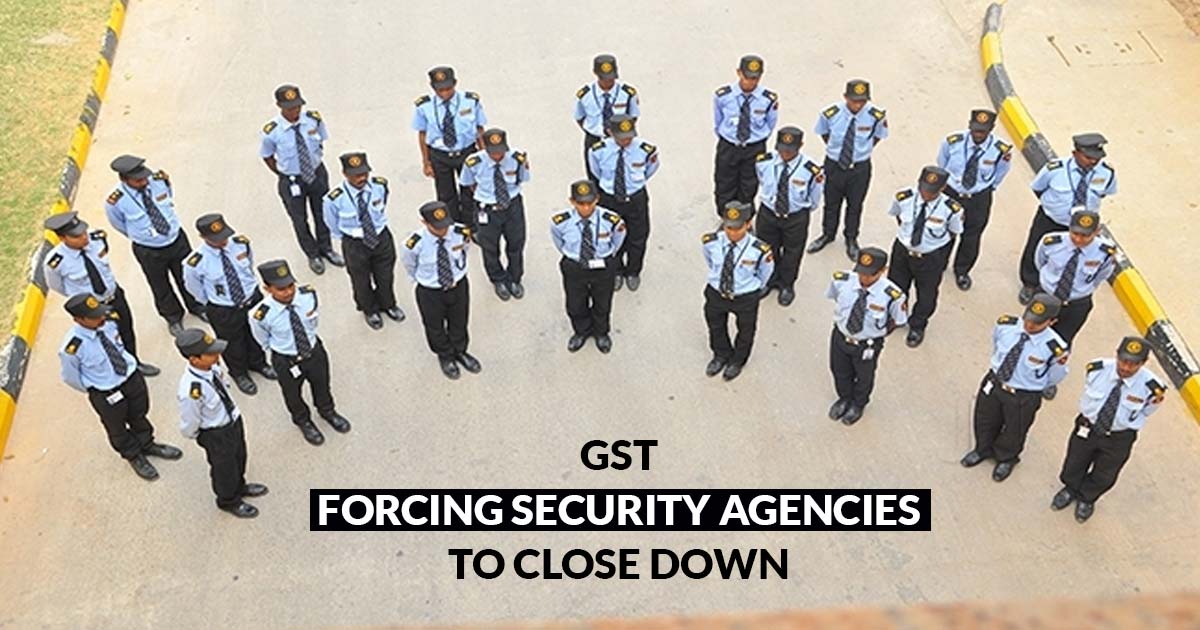Kolkata is popularly known as the City of Joy. But the GST regime it seems has not brought much joy to the security agencies in the city as well as the state. Many security agencies have called it a day. Reportedly, the private security industry has been a source of employment for nearly lakh of the city inhabitants. And in Bengal, the number stands at half a million people.
The Problems
- No RCM
- Ambiguities
The initial days of GST were marred with compliance burdens and technological complexities. But experts believe that more than this, the key blow to the industry was the 14% service tax based on receivables. Under GST the 18% tax was to be deposited upfront on a monthly basis. This led to the working capital shortage by increasing costs. Small players found it hard to survive the taxing demand for long.
Satnam Singh Ahluwalia, secretary general of Central Association of Private Security Industry (Capsi), West Bengal says, “Security agencies raise the bill on the 20th of every month and deposit the GST. However, the agencies themselves receive the payment of these bills only after 60-90 days or more”.
He further adds that RCM (reverse charge mechanism) is a viable solution. In such a case the principal employer who hires the services pays the GST on the invoices and claims refund later.
The second issue is with the ambiguity over what is taxable under GST. Invoices raised against such outsourced services involve the salary of the security personnel along with the immediately payable statutory taxes (roughly 14% for PF and 4.7% for ESI) as well as the profit margins (which is roughly around 8%-10% ). GST is charged on the total invoice.
Industry veterans claim that reimbursements are claimed immediately. Hence paying taxes on reimbursements does not seem logical practice.
Continuous Request Being Made
The matter was brought into the light of Mr Amit Mitra, State Finance Minister as well as the State Chief Minister and the Governor of the State. The same matter was brought up before the Union Finance Minister Mr Piyush Goyal. The demands and requests are now being looked into by the GST Council.
